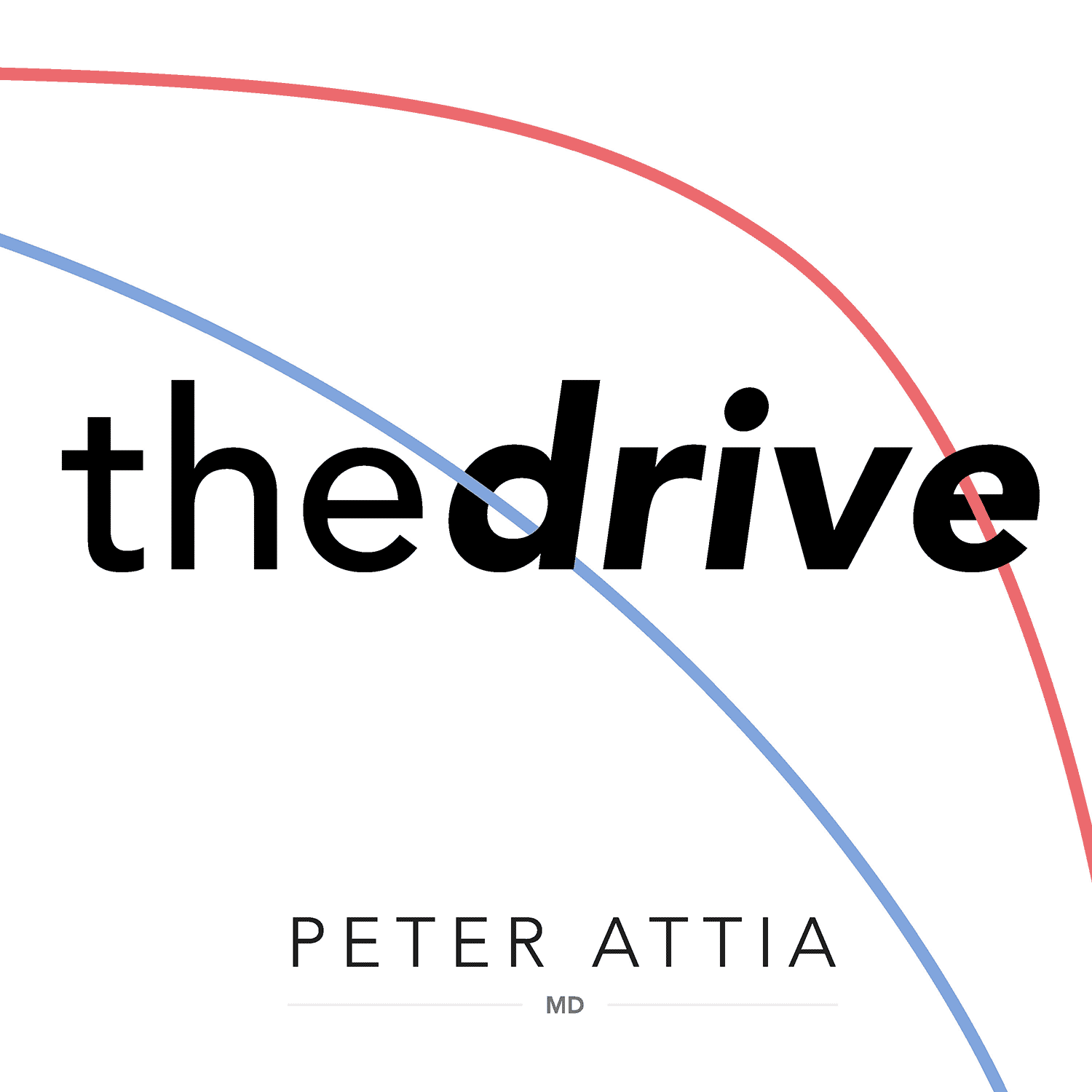
December 16, 2024 • 27min
#329 ‒ Special AMA: Peter on exercise, important labs, building good habits, promising longevity research, and more
The Peter Attia Drive

Key Takeaways
- Grip strength is an important proxy for overall strength and health outcomes, but should be trained through functional movements rather than isolation exercises
- Exercise while traveling requires deliberate planning around hotel gym facilities and accounting for jet lag impacts
- Women should prioritize strength training due to naturally lower muscle mass and bone density concerns, especially post-menopause
- Exercise alone is not an optimal strategy for weight loss, though it plays an important role in body composition and metabolic health
- When evaluating health markers, individual context matters more than population-level standards like BMI
Introduction
In this special rapid-fire Ask Me Anything (AMA) episode, Peter Attia and co-host Nick Ensson address common listener questions from the past year. The discussion covers exercise, biomarkers, longevity research developments, and frameworks for decision-making. The format aims to provide concise but thorough answers to frequently asked questions across various health and performance domains.
Topics Discussed
Grip Strength Training & Standards (4:28)
Peter explains why grip strength is studied so extensively and how it relates to overall health outcomes. He emphasizes that grip strength shouldn't be viewed in isolation but as part of comprehensive strength development.
- Key standards for grip strength assessment:
- Carrying twice body weight for 30 seconds = exceptional strength
- For 40-year-old males: carrying body weight for 1-2 minutes = good to very good
- For females: carrying 75% body weight for similar durations
- Training recommendations:
- Focus on functional movements like carries, pulls, and hangs
- Build gradually through multiple sets rather than maximal efforts
- Dead hangs: 2 minutes for strong males, 90 seconds for strong females
Exercise While Traveling (15:10)
Peter shares his systematic approach to maintaining exercise routines while traveling.
- Key strategies:
- Research hotel gym facilities in advance
- Request detailed photos/videos if needed
- Account for jet lag when planning workout timing
- Focus on maintenance rather than gains
- "The goal of exercising when you're traveling is not to maybe make the most incredible gains. It's just to prevent the losses," states Peter.
Women and Strength Training (18:22)
Peter outlines two primary reasons why women should prioritize strength training.
- Key rationale:
- Naturally lower muscle mass requires additional strength development
- Critical for bone density maintenance, especially post-menopause
- Helps prevent falls and related injuries
- Important note: Other forms of exercise (running, cycling, yoga) cannot replicate the bone-strengthening benefits of resistance training
Exercise and Weight Loss (20:05)
Peter discusses why exercise alone is not optimal for weight loss but remains crucial for overall health.
- Key points:
- Caloric restriction more effective than exercise for fat loss
- Exercise crucial for body composition and insulin sensitivity
- BMI less relevant than body composition at individual level
- "Exercise does indeed make a difference for body composition, and body composition should probably be thought of as more important than weight per se," explains Peter.
Essential Biomarkers (22:50)
While reluctant to oversimplify, Peter addresses the question of most important biomarkers to track.
- Context matters:
- Individual health history and risk factors affect relevance
- Population-level metrics may not apply to individuals
- Comprehensive assessment preferred over isolated markers
- Important consideration: BMI can be misleading at individual level - Peter notes his own BMI of 27-28 (overweight) despite healthy body composition
Conclusion
This AMA episode provides practical insights on exercise programming, biomarker interpretation, and the importance of context in health decisions. Key themes include:
- Focus on functional strength development over isolation exercises
- Deliberate planning enables consistent exercise while traveling
- Women have specific reasons to prioritize strength training
- Exercise benefits extend beyond weight loss
- Individual context crucial when interpreting health markers
The discussion emphasizes the importance of taking a comprehensive, individualized approach to health and fitness rather than following oversimplified guidelines or focusing on isolated metrics.